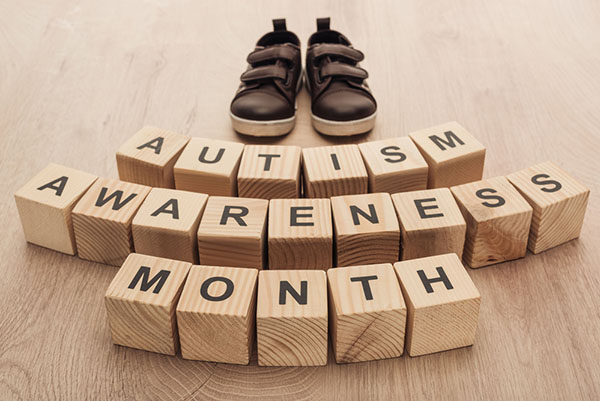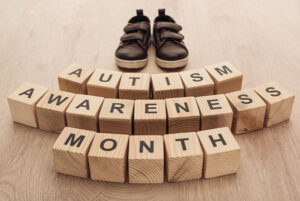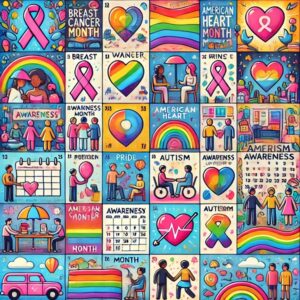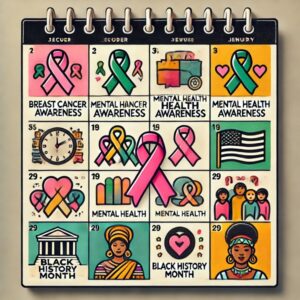
Understanding Autism: Promoting Awareness and Acceptance
What is Autism?
Autism, or Autism Spectrum Disorder (ASD), is a developmental disorder that affects communication, behavior, and social interactions. The term “spectrum” highlights the wide range of symptoms and skills of autistic individuals. Some may need significant support in their daily lives, while others may live entirely independently. Autism is typically diagnosed in early childhood, but it can sometimes be identified later in life.
The Importance of Autism Awareness
Autism Awareness Month, observed every April, aims to promote understanding and acceptance of autistic individuals. Awareness is crucial for several reasons:
- Reducing Stigma: Many misconceptions and stereotypes surround autism, leading to social stigma. Increased awareness helps dispel myths and foster a more inclusive society.
- Early Diagnosis and Intervention: Awareness campaigns educate parents and caregivers about the early signs of autism, promoting early diagnosis and intervention, which can significantly improve outcomes for autistic children.
- Support and Resources: Highlighting the challenges faced by autistic individuals and their families encourages the provision of necessary support and resources.
Common Signs and Symptoms
Autism manifests in a variety of ways, but some common signs and symptoms include:
- Communication Difficulties: Delayed speech, lack of eye contact, or difficulty understanding social cues.
- Repetitive Behaviors: Repetitive movements (hand-flapping, rocking), insistence on routines, and intense interest in specific topics.
- Social Interaction Challenges: Difficulty making friends, understanding social norms, or participating in group activities.
Promoting Acceptance and Inclusion
Raising awareness is just the first step; promoting acceptance and inclusion is equally important. Here are some ways to support autistic individuals:
Educate Yourself and Others
Understanding autism is key to fostering acceptance. Read books, attend workshops, and engage with reputable sources to learn about the experiences and needs of autistic individuals. Share your knowledge with others to spread awareness.
Support Inclusive Education
Inclusive education systems ensure that autistic children can learn alongside their neurotypical peers. Advocate for policies that support inclusion, such as individualized education plans (IEPs) and specialized training for teachers.
Celebrate Neurodiversity
Recognize and celebrate the unique strengths and abilities of autistic individuals. Many people with autism possess exceptional talents in areas such as mathematics, music, or visual arts. By valuing neurodiversity, we can create a more inclusive society.
Challenges Faced by Autistic Individuals
Despite growing awareness, autistic individuals still face significant challenges, including:
Social Isolation
Autistic individuals often experience social isolation due to difficulties in communication and social interaction. This can lead to feelings of loneliness and depression.
Employment Barriers
Many autistic adults struggle to find and maintain employment. Workplaces may not provide the necessary accommodations or understand the unique strengths of autistic employees. Advocacy for inclusive hiring practices and workplace accommodations is essential.
Access to Healthcare
Autistic individuals may face barriers in accessing healthcare due to sensory sensitivities, communication difficulties, or a lack of understanding from healthcare providers. Training healthcare professionals in autism awareness can help improve healthcare outcomes.
How to Support Autism Awareness Month
During Autism Awareness Month, there are several ways to get involved and show support:
Participate in Events
Many organizations host events such as walks, fundraisers, and educational seminars. Participating in these events helps raise awareness and funds for autism research and support services.
Use Social Media
Social media is a powerful tool for spreading awareness. Share posts, articles, and personal stories to educate your network about autism. Use hashtags like #AutismAwareness and #AutismAcceptance to join the conversation.
Volunteer or Donate
Volunteer your time or donate to organizations that support autistic individuals and their families. Your contributions can help provide vital resources and support services.
Conclusion
Autism Awareness Month is an opportunity to educate, support, and celebrate the autistic community. By promoting understanding and acceptance, we can create a society where autistic individuals are valued and included. Through continued advocacy and education, we can break down barriers and ensure that everyone, regardless of their neurological makeup, has the opportunity to thrive.
By spreading awareness and fostering acceptance, we can build a more inclusive world for autistic individuals. Remember, every effort counts, and together, we can make a difference.














